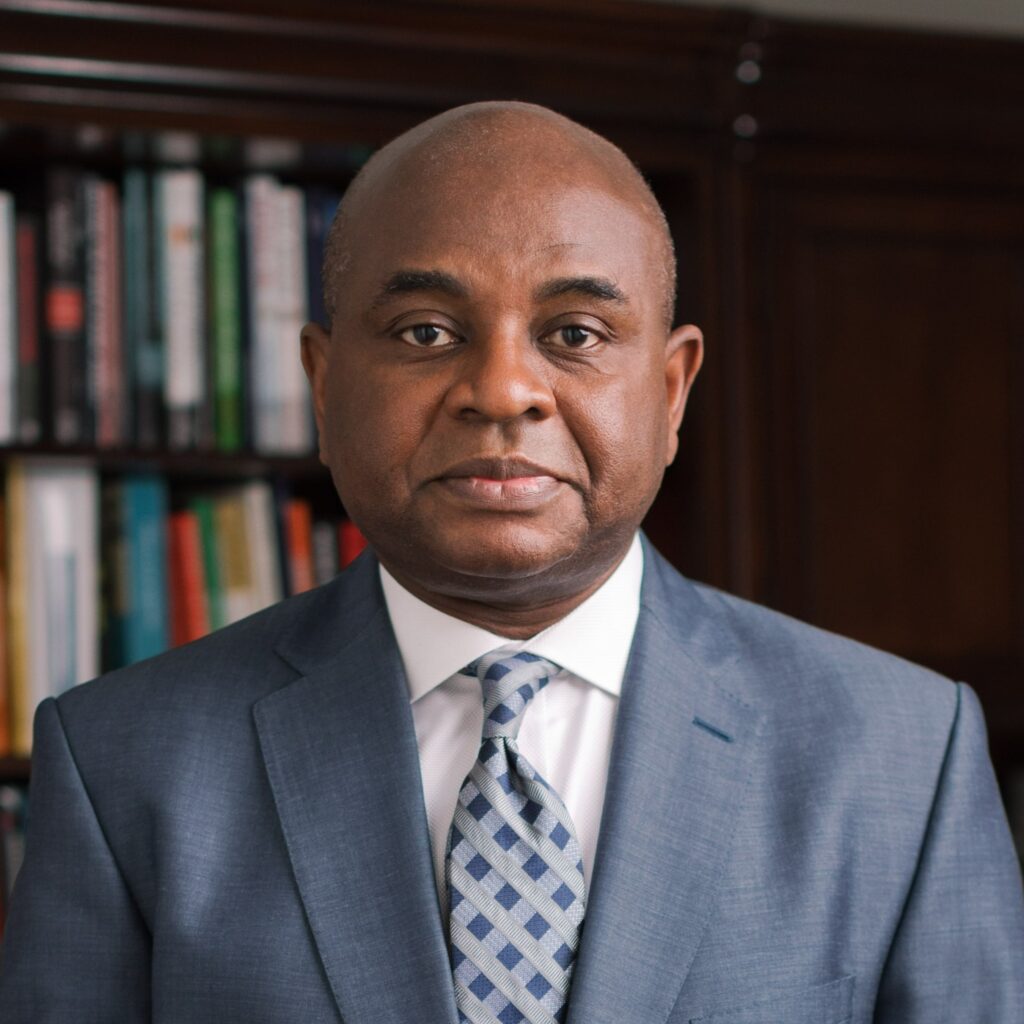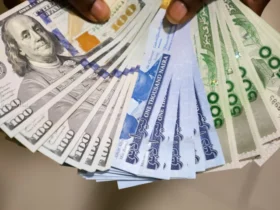
Former presidential candidate Prof. Kingsley Moghalu has projected that the prevailing economic hardship and its repercussions will endure for at least three to five years.
The political economist attributed Nigeria’s distressed economy to ‘unprecedented corruption and incompetent policy responses’ as its primary causes.
During his keynote address at the ‘Leadership Newspaper Group 2024 Conference and Awards’ in Abuja on Tuesday, the former Central Bank Deputy Governor painted Nigeria’s current economic state as a ‘Chronicle of a Death Foretold,’ attributing it to the collective choices made by the nation.
Moghalu emphasized that hyperinflation, the devaluation of the Naira, debt burdens, revenue deficits, unemployment, and extreme poverty are all outcomes of long-term mismanagement of the economy.
He said, “The past 10 years were particularly ruinous. They were the years of the locust, marked by unprecedented mismanagement of fiscal policy, unproductive external borrowing, unnecessary budget deficits, illegal Ways & Means lending by the Central Bank of Nigeria to the federal government to the tune of N30tn, and unprecedented corruption.
“Earlier, a combination of oil price shocks and an incompetent policy response from the CBN, in the form of an attempt to fix the exchange rate, all helped give us two recessions within seven years. Many of these things happened because, as we witnessed, there was a successful political assault on the independence of the central bank, with the storekeeper willingly handing over the store keys to the marauders.”
Expanding on his point, Moghalu emphasized that Nigeria faces a crisis that will persist regardless of short-term measures taken. He stressed that the repercussions of this crisis, and whether such measures succeed or fail, will be felt for a minimum of three to five years.
READ ALSO: Binance Slams Bayo Onanuga for Lying, Denies $10 Billion Fine Talks with FG
Regarding the recent economic reforms by the Federal Government, the political economist commended the bold and correct decisions to remove the petrol subsidy and forex subsidy.
However, he criticized the government’s handling of these major policy changes, which have resulted in widespread economic hardship.
He pointed out the first mistake: the sudden implementation of these policies without adequate preparation for the aftermath.
He stated, “Nigerians should first have been educated on the economics of why these subsidies had to go, and on what steps the government was taking to mitigate the anticipated impact; that is, with a subsidised mass transportation system across the country.
“The forex reforms at the central bank should have benefitted from prior, in-depth consultations with institutional investors who are the movers of global capital and in the absence of robust revenues from oil, influence forex liquidity through capital importation.”
Moghalu, serving as the chairman of the Advisory Board and Board of Directors for the Africa Private Sector Summit, argued that the decision to unify the exchange rate and further attempt to “float” the naira in a context of abundant naira liquidity was a misstep. He attributed the naira’s decline to this move, emphasizing that it lacked immediate monetary tightening as a precursor or accompaniment.
Attributing Nigeria’s economic challenges to a lack of national cohesion, poor governance, ad hoc decision-making without a strategic framework, and a deficiency in philosophy and knowledge, Moghalu advocated for a bold, visionary initiative termed “Project 3-in-3.” This project aims to rejuvenate three key sectors within a three-year timeframe.
He said, “The project, to be scoped and commissioned within the next three months, is to be predicated on massive investment in the development of railway lines (linking all state capitals), housing (mortgage-ready and qualitative to incrementally reduce housing deficits), and agriculture (covering the value chain), to be delivered in the first phase over three years beginning in 2024.
“Project 3-in-3 should target to create 5 million new direct and indirect jobs. It will create two new thriving economic sectors. The purpose is to stimulate productivity in agriculture and housing, two sectors that do not depend on foreign exchange, and depend on locally available resources across the 36 states. That resource is land.”
On the very day Chief Bola Tinubu disputed the idea that the Nigerian economy is in trouble, emphasizing instead the remarkable prospects for growth and progress in the nation, Moghalu shared his remarks. Tinubu made these assertions during his address at the Leadership Conference and Awards 2023, hosted at the Congress Hall of the Transcorp Hilton in Abuja on Tuesday.
“I should start by respectfully challenging the notion that the Nigerian economy is in distress. Distress suggests helplessness, being at the mercy of something we have no control over. But that is not the case here.
“We are in challenging times, no doubt, but these times have also been marked by unprecedented opportunities, to reset course and to build a new and sustainable economy, away from the rent-seeking and the waste that was once the order of the day,” Tinubu, who was represented by the Minister of Information and National Orientation, Mohammed Idris, said.









Leave a Reply